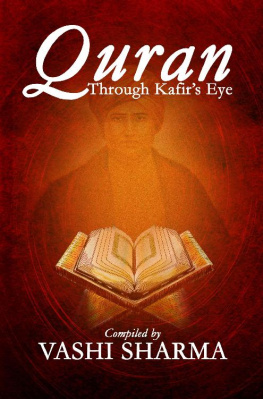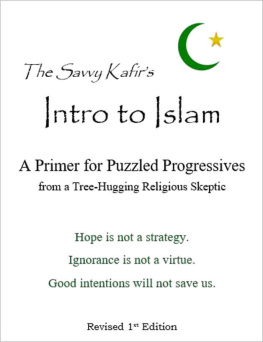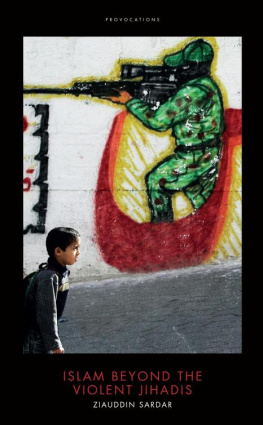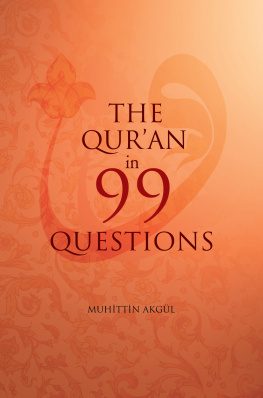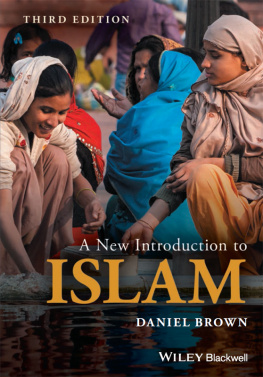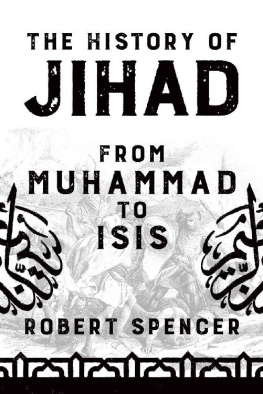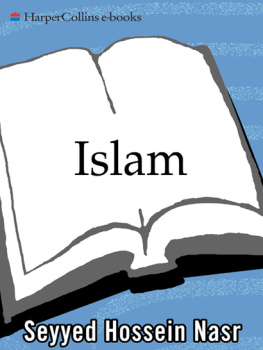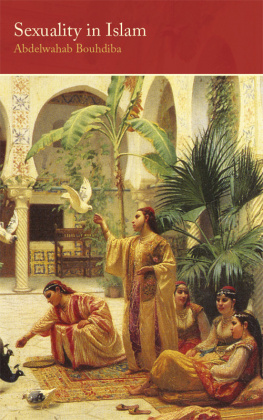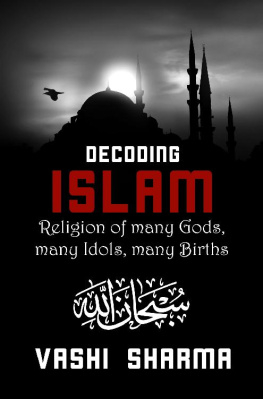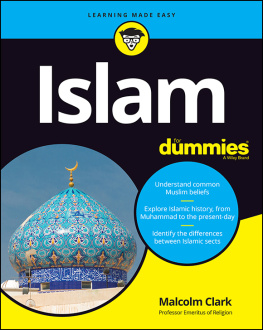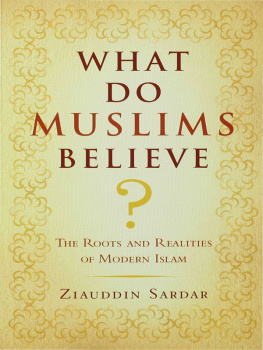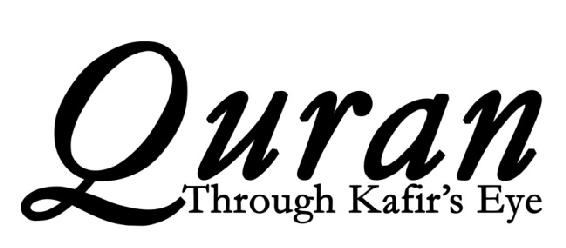
Quran : Through Kafirs Eye
Agniveer is only publisher of this book and claims no copyright over the material presented in this book . The content is already in public domain as a chapter in the book Light of Truth English Translation of Satyarth Prakash by Swami Dayanand.
For information contact
books@agniveer.com
First Edition: February 2018
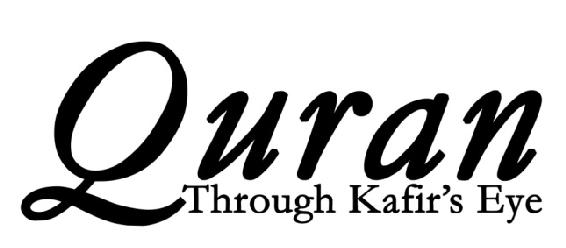

Other Books by Vashi Sharma
INDIAN MUSLIMS
Children of India or Slaves of Arabs
THE NAKED MUGHALS
Forbidden Tales of Harem and Butchery
EVERY MUSLIM IS NOT A TERRORIST
How to prevent the next terror attack
PADMAVATI
Stories from buried history
ISLAM MEANS PEACE BUT
AGNISANKALP
This book is dedicated to the warrior saint of Hinduism Swami Dayanand who paved the way of criticizing fanatic cults which remained untouched/unchallenged for centuries because they were too violent.
PREFACE
We are pleased to present first-ever intellectual analysis of Quran and Islamic concepts by the most revered and prominent Hindu figure of last 500 years.
This book is the comprehensive analyses of Islam done by Swami Dayanand Saraswati the prominent Hindu saint of the 19th century and the author of Satyarth Prakash (light of truth) published in 1883.
Swami Dayanand had been a champion of the cause of Vedas and had a huge number of debates with Moulvis throughout his lifetime, the essence of which is culminated in the 14th Chapter of Satyarth Prakash or Light of Truth.
For centuries, Quran and Islam were forced on people of the world with sword. All Muslim invaders who attacked India, killed and converted crores, looted everything, raped millions and destroyed almost all temples were, in their own words, soldiers of Islam and did everything to establish the word of Quran in the land of Kafirs. After centuries of bloodshed from one side and silence from the other, Swami Dayanand decided to challenge the butchery and question principles of Quran based on which his motherland was so brutally attacked and destroyed. He had debates with Moulvis. He used to even publish advertisements to invite Islamic scholars for debate and remained undefeated.
So strong was the impact of this critical analysis that not only did it open gateway for much needed further criticisms coming from all across the world but also forced the Moulvis to start reinterpreting and re-translation of Quran. The entire Shuddhi movement (reconversion of Muslims into original Vedic faith) started as a mass movement. And most importantly, the translations and interpretations of Quran that we see today are significantly different from what existed from the creation of first Quran some decades after the death of Prophet up to 1883.
There may be minor errata and the language may be slightly dated. But the goal is to gather the overall concepts. For original text, study Satyarth Prakash in Hindi language. It has been observed that the versions of Quran available in the time of Swami Dayanand were quite different from those available today. Many verses appearing in earlier versions are not there with the same verse numbers in many available versions today. Islamic scholars may clarify on this if they wish to. But for time being, if you want to cross check references given by Dayanand, and you dont find the verse at its place in modern versions of Quran, just check 4 to 5 neighbouring verses and you should get those.
We have reproduced the work of Swami Dayanand as it is in this book. Since he is considered as a religious figure in Hinduism by many at par with the prophet of Islam or any other Abrahamic religion, his words or criticism must be taken in the same spirit as harsh verses of Quran against idolatry, unbelievers of Islam, Jews, Pagans and Hindus.
Vashi Sharma
New Delhi
DISCLAIMER
This book on analysis of Islam by Swami Dayanand is based on the translations and commentaries of Islamic texts like Quran, Hadiths etc. as published by all major Islamic publishing sources. These are the publicly available translations that are used for promotion of Islam by prominent representatives. We, however, believe that most of these texts have been wrongly translated, misinterpreted, misquoted or even have been tampered with and interpolated to suit the selfish designs of proponents of Islam after Prophet. Thus, we believe that original Islam and original Quran of Prophet are totally different from what has been propagated by his namesake followers in name of Islam. There are few minority groups of Muslims whose scholars subscribe to our views and interpret/translate Islamic texts differently or even refuse to consider the available Quran and Hadiths as authentic. But these scholars themselves are considered Kafirs and are condemned by ruling elite of Islam. Thus, when we refer to Islam, we actually imply these ruling elites of Islam and not Muslims or all Islamic scholars in general. Wherever we critically evaluate Prophet, we imply the fictitious Prophet propagated by these false texts or their wrong translations and not the original Prophet. We have high regard for original Prophet who stood for non-violence and tolerance. Similarly, when we analyze Islamic texts, we refer to these questionable translations/versions and not original texts. Further, we have a sense of the highest level of brotherhood for Muslims in general. Wherever we use the word Muslim in a critical manner, it refers to false representatives of Islam and not Muslims in general. Readers are requested to keep this in mind to understand the correct perspective of the book.
Contents
INTRODUCTION TO THE ANALYSIS
In the fourteenth chapter (of Satyarth Prakash), we have discussed the Mohammedan (Islam) religion. Our criticism against the Quran is based directly on the teachings of the Quran itself and not on those of any other book. Thought differences of opinion with regard to the interpretation of certain words and verses do exist among the Mohammedans - they being split up into so many sects - yet all agree with the revealed/divine character of the Quran.
The Quran, which is written in the Arabic language, has been translated into Urdu by distinguished Mohammedan scholars. This translation was rendered into Hindi and transcribed in Devanagari character and was then corrected by eminent Arabic scholars. Anyone questioning the accuracy of our translation should first prove the translation done by those Mohammedan scholars to be incorrect before sitting down to find faults with us.
The objective of this criticism is to contribute to the elevation of the human race and enable all men to sift truth from falsehood by giving them some idea of the teachings of various prevalent religions, as this will afford them opportunities for friendly discussions so useful in helping men to point out their defects and to appreciate their merits.
It is not our purpose to falsely condemn this or any other religion. On the contrary what we aim at is that whatever is true should be recognized as such and whatever is false should be condemned as such, so that no one should be in a position to palm off untruth for truth or hinder the progress of truth. One is, of course, free to accept the truth or for the matter of that even refuse to do so after it has been published; compulsion being impossible in such matters. Good men will, as a rule, after they have realized their merits and demerits, imbibe good qualities and reject bad ones and eradicate bigotry and prejudice and wherever found. Who does not know something of the prodigious amount of evil that has been wrought by bigotry? The truth is that it is unworthy of a human being to injure others and throw away his own chance of happiness in this uncertain and transient life.
Next page
